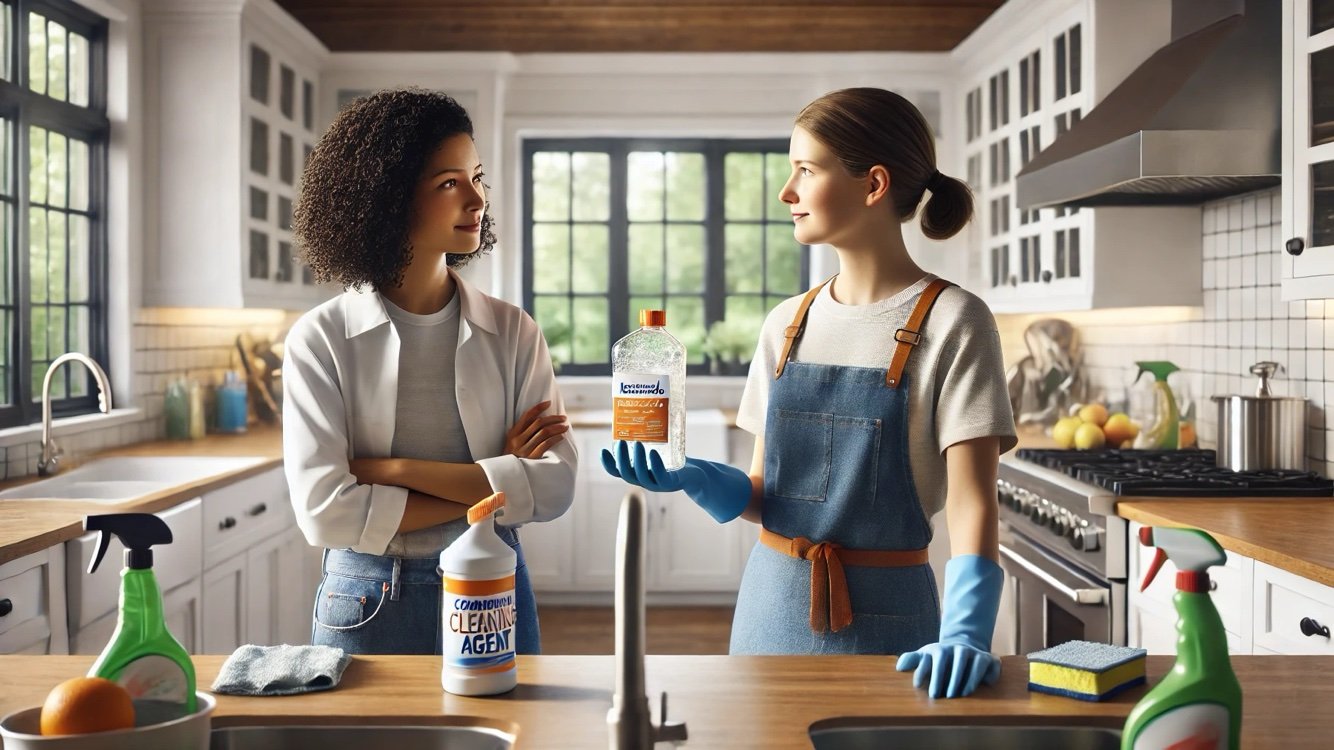What Is the Difference Between Commercial and Homemade Cleaning Agents?
Commercial-grade cleaning is the quality and methods used by professional cleaners for offices, restaurants, retail store facilities, institutions for education, or health to provide and maintain a sanitary and agreeable environment.
When it comes to keeping your home clean and tidy, you only have two main options: store-bought commercial cleaners, or homemade cleaners you mix yourself. In most situations, our Move out Cleaning Service Austin uses highly commercialized products because they are more effective and reliable. Homemade cleaners are in no way lesser than their commercial counterparts. Easily, both do the same work with equal finesse, but commercial and DIY cleaning agents have some distinctive differences.
Ingredients
The biggest difference lies in the ingredients, with a number of the products in the commercial cleaning product line containing caustic chemicals such as ammonia, chlorine bleach, and synthetic fragrances. They work great at cutting through grime but can irritate eyes, skin, and lungs. Some of them release volatile organic compounds or VOCs, which cause respiratory problems and headaches.
Homemade cleaners are typically made with milder, more natural ingredients such as vinegar, baking soda, borax, lemon juice, and essential oils. These are less likely to irritate and are more environmentally friendly. However, natural ingredients can be a bit less efficient against really tough messes.
Cost
Another is cost. Convenience might be on the side of cleaning products available in the market, but their costs add up over time. Cleaning solutions prepared at home, with inexpensive items found in the pantry, are usually economical in the long run. For instance, a gallon of white vinegar costs only a couple of dollars and makes everything from an all-purpose spray to glass cleaner.
Effectiveness
So do homemade cleaners work as well as store-bought? In many cases, yes. Ingredients like baking soda are mildly abrasive and great for scouring. Acids like vinegar and lemon juice break down soap scum, hard water deposits and mold. However, for serious disinfecting, commercial products containing bleach or hydrogen peroxide are more reliable.
Customization
Advantages of making your cleaners: you can make a formula tailored to what works best for you. You are in control of ingredients and their ratios. Not a fan of the strong smell of vinegar? Use less of it, or add some essential oils that will give it a pleasing scent for you. Want some serious scrubbing power? Add more baking soda or borax.
While with commercial cleaners you can only have whatever scents and strengths have been produced in a factory, some brands offer a "free & clear" version, without dyes or perfumes, for those with sensitivities.
Convenience
It is without a doubt easier to pick up a premixed bottle of cleaner from the shelf than to make your own. Commercial products, like those used by Sparkly Maid Miami, represent ready-for-use items in convenient forms like trigger sprays, wipes, and even concentrated pods.
Making your cleaners takes more time and effort than store-bought ones because you need to have ingredients in stock, portion them out, and mix them. However, making a big batch of all-purpose cleaner to store in a spray bottle should be easy, so you don't have to mix it repeatedly.
Commercial cleaners and homemade cleaners can both do an amazing job of cleaning your home. For convenience, commercial products are the way to go, but they may have harsher chemicals added. Homemade cleaners are frugal, green, and customizable, but they take a bit of elbow grease to mix. Choose whatever works best for your cleaning needs and preferences, or use one or the other interchangeably for what you need at the time.
